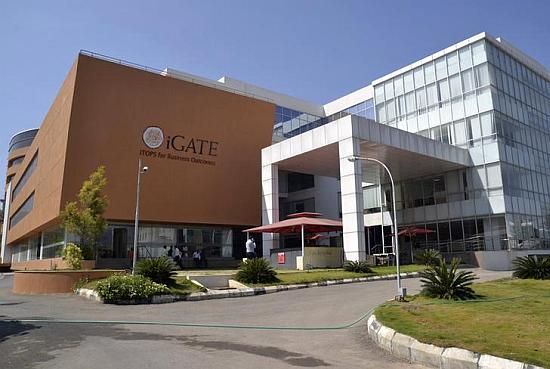 | « Back to article | Print this article |
 Nasdaq-listed IT services firm iGate on Thursday posted a sequential decline in net profit for the first quarter (Q1) ended March 31, 2014. However,
Nasdaq-listed IT services firm iGate on Thursday posted a sequential decline in net profit for the first quarter (Q1) ended March 31, 2014. However,
Ashok Vemuri, president and chief executive officer of iGate, believes the US-headquartered company has started seeing a positive impact of the verticalised structure it had recently adopted.
Excerpts of his interaction with Itika Sharma Punit through a video conference from the US:
What are the reasons for the decline in profits during Q1?
In the past quarter, we had a cost of $7.5 million with regard to visas.
As we continue to see a rise in our business in the US, we had to bear the costs as well. We will have a cost in the next quarter also, which we are yet to quantify.
This is because of wage increases which we are effecting. As we continue to invest in our business in terms of recruiting more people and expanding our physical infrastructure and IT infrastructure, those will continue to be a dampener on our margins.But we are committed to sustaining 25 per cent Ebitda (earnins) before interest, taxes, depreciation, and amortisation) margins in the long-term.
How has the verticalised structure, which you adopted in the last quarter, done?
The journey towards verticalisation is about 90 days old and I am extremely pleased with the way my team has adopted the new structure.
More importantly, my clients have reacted quite positively to that. We are today in a place where not only do we have business leaders to run the teams with profit and loss mandate, the critical thing is that we have the right people to run these businesses.
We have them in the right seats on the bus and the bus is beginning to accelerate to produce the results that we need. I really think the full impact of this verticalisation will become more visible as we progress in the quarters.
You are also planning to revamp your go-to-market strategy. Could you share the details?
There are two or three reasons why we are doing this. One is that we have identified the markets that we want to go to. We are re-tooling our performance management to make our teams much more successful and align with our goals as well as the goals of our clients. As we move up the value chain, it is also important to hire people who can deliver to our programmes.
You added 1,100 people in Q1. Could you share the details of your hiring strategy?
We have hired 2,500 people in the past two quarters and we are comfortable with the way training programmes are going on.
Of the 1,100 people that we hired in the last quarter, a majority of them were hired in India. We have also hired in the different markets based on specific requirements.
You saw a decline in active clients in Q1 as you were looking to exit non-key geographies. Would we see any further fall in this number?
We are very happy to report that 80 per cent of what we had embarked on is completed in a record time of one quarter.
These are tail accounts which are either not doing well, or we were not engaged with them in the right way since we were not in the right geography.
Besides, there were margin issues as well. We have disengaged in a very cordial fashion. The impact of this on our financial has been negligible to the tune of 0.2 per cent.
You are also foraying into Germany. What made you start looking at that market now?
We have very strong capabilities in product engineering as well as in financial services. Given the traction and demand in the German market in terms of automation, we think it is a good opportunity for us to leverage that market.